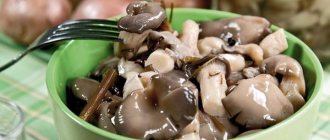However, what is surprising is that they have a shorter shelf life than fresh eggs.
This article explains how long you can store hard-boiled eggs and how to keep them fresh longer.
How long to store eggs in the refrigerator
Choose a storage method based on the form in which you intend to use the product:
| Whole raw egg: up to 90 days | |
| Raw egg without shell: 7 days | |
| Soft-boiled (in a bag): 20 days | |
| Hard-boiled: how long can boiled eggs be stored in the refrigerator - 45 days |
Useful properties of the product
Poultry products have many beneficial properties for the human body. These are vitamins, essential amino acids, microelements:
- influence the state of the organs of the visual system;
- the concentration of carotene significantly prevents the appearance of eye pathologies, for example, the formation of cataracts;
- contains almost 10 grams. pure protein, 9 essential aminocarboxylic acids, 12 essential vitamins;
- prevent myocardial infarction and the formation of blood clots.
The presence of an organic nitrogenous substance, choline, has a significant improvement in memory. The enzyme ensures the functioning of the liver during metabolic processes, and also prevents scalp loss.
The egg is rightfully considered a dietary food product and contains only five grams of fat. Nitrogenous substance - vitamin D, prevents the occurrence of breast cancer in women.
Precautions when eating eggs
Fans of chicken eggs should remember that boiled eggs should not be overused. Nutritionists and Russian doctors advise eating no more than 270 eggs per year, respectively, no more than 4-6 eggs per week.
You should avoid eating chicken eggs if you have problems with the genitourinary system or heart.
People suffering from gastrointestinal diseases need to reduce the amount of eggs consumed. This will avoid exacerbations of the disease.
However, it should be noted that chicken eggs are a very healthy product, and they should be completely abandoned only in cases of individual intolerance or allergies.
What to do with boiled ones?
Boiled eggs cook quickly, and at the same time they are tasty and nutritious. This product is an excellent source of protein and other nutrients. Boiled eggs can be a convenient snack or quick meal. It is important to store them properly to keep them fresh and safe to eat. Refrigeration, freezing and pickling are methods that can help you preserve hard-boiled eggs for a long time while maintaining their flavor. How long do boiled eggs last without refrigeration and in the refrigerator?
We suggest you read How to wash kitchen towels
Boiled eggs cook quickly, and at the same time they are tasty and nutritious. This product is an excellent source of protein and other nutrients. Boiled eggs can be a convenient snack or quick meal. It is important to store them properly to keep them fresh and safe to eat. Refrigeration, freezing and pickling are methods that can help you preserve hard-boiled eggs for a long time while maintaining their flavor. How long do boiled eggs last without refrigeration and in the refrigerator?
GOST requirements
The provisions of the state standard of the Russian Federation and sanitary and epidemiological rules and regulations stipulate the duration of storage of poultry eggs.
The optimal temperature is from 0° C to 20° C. GOST indicates the humidity level is 85-88%. The standard also indicates the duration of preservation of poultry products that can be kept at the specified temperature - a maximum of 90 days.
Rules for storing egg products according to GOST R53155-2008, as amended
Special categories of products described have the following shelf life:
- dietary unit - no more than one current week;
- canteen unit — maximum 25 days;
- washed products are kept for no more than 12 days.
The table below shows the storage time of the product in the refrigeration unit:
| Type of preparation, production of product (eggs) | Storage duration (days), temperature (+° C) | |
| 2-5 | ≤ 5 | |
| Raw, homemade, without deformation | 90 | 30 |
| Hard-boiled, no deformation. | 20 | 5-7 |
| Raw, industrial, no changes | 30 | 14 |
| Hard-boiled, no deformation. | 10-14 | 4 |
| Beaten raw (all) | 1-2 | are not subject to |
| Cracked, hard-boiled (any) | 3-4 | 1-2 |
| Peeled, hard-boiled | 3 | 1 |
Poultry products that have been subjected to heat treatment - boiling and deshelled - are not subject to long-term storage. It should be consumed within the next 12 hours. Failure to comply with the rule will result in poisoning and other negative consequences for the health of the consumer.
Methods for boiling chicken eggs
In order for the eggs to remain intact during cooking, you need to put them out of the refrigerator on the table and leave for 5-10 minutes. Then the eggs need to be washed thoroughly, placed in a saucepan, covered with cold water and put on fire. You can add a little salt to prevent the shell from cracking during cooking.
There are several main types of boiled eggs:
- Soft-boiled eggs – cooking time 2-4 minutes;
- Eggs in a bag – cooking time 4-5 minutes;
- Hard-boiled eggs – cooking time 8-12 minutes.
Storage Features
When preparing boiled eggs for future use, it is worth considering the following features of their storage::
- Before putting them in the refrigerator, the eggs are cooled and wiped dry - moisture provokes the development of pathogenic bacteria;
- specimens with cracked shells are eaten first - even in the refrigerator they will spoil in a couple of days;
- the presence of an unpleasant odor is a clear sign of a spoiled product; eating it is dangerous to health;
- a freshly brewed product contains the maximum amount of useful substances, so try not to prepare large volumes for future use unless necessary;
- pay attention to the yolk: if it has a color or structure that is not typical for it, refuse to use such a product;
- The hard-boiled product lasts the longest in the shell;
- the shell of specimens sent for long-term storage must be intact, without cracks or damage;
- If you grease the shell of a boiled egg with a small amount of sunflower oil, this will create an additional protective layer and extend the shelf life.
Influencing factors
The shelf life of eggs, boiled or raw, will be influenced by various factors, which should definitely be taken into account when determining the shelf life. If you purchase eggs in containers, as a rule, they are marked with the date of manufacture. But in most cases, we do not know when exactly the eggs of chickens or quails reached the seller’s counter. This is where you need to take some features into account.
Main factors:
- date of manufacture;
- storage conditions;
- temperature regime;
- the presence of the shell and its integrity.
As already mentioned, state standards have established the optimal temperature for storing such a product. It can vary from 0 to +20°, but not higher.
Important! Eating spoiled eggs can cause intoxication or infectious diseases. Such products contain infectious agents and pathogens, including salmonella.
Boiled or raw eggs should be stored in intact, undamaged shells. After heat treatment, the products need to be carefully inspected. If there are even small cracks, it is better not to store such eggs, but to eat them immediately.
On a note! The shelf life of a boiled egg can be extended if its shell is lubricated with refined vegetable oil after cooling.
Boiled eggs are a great start to the day
It is quite difficult to imagine a typical resident of Russia who does not eat boiled chicken eggs. After all, these eggs can be consumed not only as an independent dish, but also added to salads and other culinary masterpieces.
The consumption of boiled eggs began with the ancient Romans, who loved to have this dish for breakfast. Modern scientists insist that to improve performance and general emotional state, a person needs to eat boiled eggs for breakfast.
Shelf life in the freezer
The freezer is not the best place to store eggs, because due to prolonged exposure to very low temperatures, this product loses almost all of its beneficial properties. If you find eggs among your supplies that are approaching their expiration date, it is better to freeze them so that you can use them later for cooking, rather than throwing them away now. You can freeze both raw and boiled eggs; the shelf life of both types in the freezer is up to one year. To freeze raw eggs you need:
- Break them one by one into a deep plate, remove the remaining shells, and shake a little with a fork.
- Add a pinch of salt or sugar and stir so that after defrosting the consistency of the egg mixture remains homogeneous and does not become grainy.
- Pour the egg mixture into a clean, dry container of a suitable size, without adding 1-2 cm to the edges - it will expand under the influence of negative temperatures.
- Write the freezing date on the lid of the container and store it in the freezer.
If you want to freeze boiled eggs, use only the yolks, and use the boiled whites now, because once defrosted, their grainy texture is unlikely to remain suitable for cooking. To freeze boiled yolks:
- Place them in a deep saucepan, cover with cold water, and place over high heat.
- Once boiling, cover the pan with a lid and leave for 15 minutes.
- Then remove the yolks with a slotted spoon, remove any remaining liquid, place in a container and freeze.
- How to make curls at home
- Homemade grape wine - simple recipes. Technology for making grape wine at home
- Rice noodles: recipes with photos
What the regulations say
Sanitary rules regulate the duration of storage and conditions for placing food products. According to SanPiN 2.3.2.1324-03, boiled eggs should not be used later than 36 hours after cooking.
The product is stored on the territory of a public catering establishment at temperatures up to +6 °C.
GOSTs determine the time during which raw embryos of different types of poultry can be stored, the conditions for their placement, and packaging requirements.
Additional benefit
You can get a sufficient amount of protein from boiled eggs, so athletes use them to gain weight and build a beautiful figure. They also contain a large amount of vitamin D. It is necessary for people who work in offices and who lack daylight.
Hard-boiled chicken eggs are often used by people who want to lose weight quickly. Many people believe that if you eat a few eggs instead of breakfast, then after about 10 days your weight will begin to decrease. But this is a radical method, since there are other ways to combine fats and proteins in products as a diet.
There is a Hollywood, high-protein method of losing weight, as well as special fasting days using the product. By applying the principles, you can lose fat tissue, but at the same time maintain muscle mass and not harm the body.
What about raw ones?
Putting your eggs in a special compartment in your refrigerator may look pretty, but it is still recommended to store them in their original carton. Why is this necessary? First, the cardboard protects the eggs and prevents them from absorbing strong odors and flavors from other foods stored in your refrigerator. This occurs through thousands of tiny pores in the shell. Secondly, this will always show the date by which they can be consumed, so you can guarantee freshness. Finally, eggs should always be stored with the wide end facing up, as they are packaged in a cardboard box. This helps the yolk stay centered.
They can be stored for up to a month. Without refrigeration, raw eggs can remain edible for about 2-2.5 weeks.











